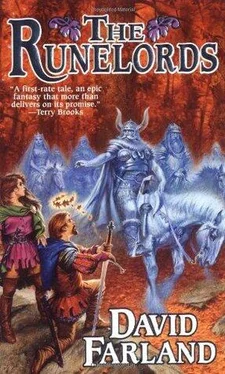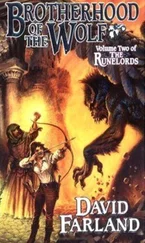David Farland - The Sum of All Men
Здесь есть возможность читать онлайн «David Farland - The Sum of All Men» весь текст электронной книги совершенно бесплатно (целиком полную версию без сокращений). В некоторых случаях можно слушать аудио, скачать через торрент в формате fb2 и присутствует краткое содержание. Жанр: Фэнтези, на английском языке. Описание произведения, (предисловие) а так же отзывы посетителей доступны на портале библиотеки ЛибКат.
- Название:The Sum of All Men
- Автор:
- Жанр:
- Год:неизвестен
- ISBN:нет данных
- Рейтинг книги:3 / 5. Голосов: 1
-
Избранное:Добавить в избранное
- Отзывы:
-
Ваша оценка:
- 60
- 1
- 2
- 3
- 4
- 5
The Sum of All Men: краткое содержание, описание и аннотация
Предлагаем к чтению аннотацию, описание, краткое содержание или предисловие (зависит от того, что написал сам автор книги «The Sum of All Men»). Если вы не нашли необходимую информацию о книге — напишите в комментариях, мы постараемся отыскать её.
The Sum of All Men — читать онлайн бесплатно полную книгу (весь текст) целиком
Ниже представлен текст книги, разбитый по страницам. Система сохранения места последней прочитанной страницы, позволяет с удобством читать онлайн бесплатно книгу «The Sum of All Men», без необходимости каждый раз заново искать на чём Вы остановились. Поставьте закладку, и сможете в любой момент перейти на страницу, на которой закончили чтение.
Интервал:
Закладка:
Five poems later, Gaborn came upon another poem in the same form, yet its near rhymes came in the first two lines.
Gaborn thought back to the near rhymes in the previous poem: “Read, philosophy.” Now the near rhymes here: “Behind, spine.”
He thumbed through the next five pages quickly, found another near rhyme, with the words, “Room, of dream.”
“Read philosophy behind spine. Room of Dreams,” he muttered. His heart pounded. The teachings that the Days learned in the Room of Dreams were forbidden to Gaborn's kind. Surely, the Days would destroy this chronicle if they found the Emir disseminating such knowledge among Runelords.
Thus the Emir's warning: “Show it only to those whom you trust.”
Gaborn glanced at the remainder of the book. The last section was dedicated to philosophical musings—treatises on the “Nature of a Goodly Prince,” exhorting would-be kings to mind their manners and avoid slashing their father's throats while waiting for the old men to die off.
The cover, back, and spine of the book were made of stiff leather, sewn to a softer covering of lambskin.
He glanced over his back. He'd been reading for hours. Rowan lay quiet, breathing in the slow way of those who sleep.
Gaborn unsheathed his knife, cut the threads that bound the cover to the book. As he did so, he kept fumbling; his hands shook badly.
His forefathers had wondered at the teachings in the House of Dreams for generations. A man had died to bring this to Sylvarresta. Probably without reason. A spy knew that a book came from Tuulistan, and figured that it warned of Raj Ahten's invasion plans. So the spy had struck down an innocent man.
Yet Gaborn worried—even though he suspected that it was irrational—that he, too, would be killed, if the Days ever learned he'd read these teachings.
From inside the back cover dropped five thin sheets of paper with a small diagram and the following note:
My Dear Sylvarresta:
You remember at Binya, when we discussed those men who revolted against me, for they said I stole their wells to water my cattle? I had been taught that as prince, all the land in my realm belonged to me, as did the people on it. These things were my birthright, granted by the Powers. So I planned to punish the men for their theft.
But you enjoined me to slaughter my cattle instead, for you said that every man is lord of his own land, and that the lives of my cattle should serve my people, not my people the cattle. You said that Runelords could rule only if our people loved and served us. We rule at their whim.
Your views seemed wonderfully exotic, but I bowed to your wisdom. I have spent years since considering the nature of what is just and what is unjust.
We both have heard forbidden fragments of doctrine from the Room of Dreams, but recently I learned something most secret from that place. I give you this diagram for your instruction:
The Three Domains of Man
In the Room of Dreams, the Days are taught that even the ugliest sparrow knows itself to be a lord of the skies, and knows in its heart that it owns all it surveys.
They teach in the room that every man is the same. Every man defines himself as a lord unto himself, and inherits a birthright of three Domains: the Visible Domain of things we can see and touch; the Communal Domain made up of our relationships with others; and the Invisible Domain—territories we cannot see, but which we actively protect nonetheless.
While some men teach that good and evil are defined by the Powers or by wise kings in authority, or change according to time and circumstance, the Days say that the knowledge of good and evil is born into us, and that the just laws of mankind are written on our hearts. They teach that the three domains are the sole medium by which mankind defines good and evil.
If any man violates our domain, if he seeks to deprive us of our birthright, we call him “evil.” If any man seeks to take our property or life, if he attacks our family or honor or community, if he strives to rob us of free will, we can justly protect ourselves.
On the other hand, the Days define goodness as the voluntary enlarging of another's domain. If you give me money or property, if you bestow upon me honor or invite me to be your friend, if you give time in my service, then I define you as good.
The teachings of the Days—they are so different in implication from what I learned from my fathers. My father taught that the Powers had ordained me to be lord of my realm. As was my right, I could take any man's property, any woman's love, for these things I owned.
Now I am confused. I hold to what my father taught, yet feel in my heart that I am wrong to do so.
I fear, my old friend, that we are under judgment by the Days, and that this diagram shows the rod by which we are measured. I do not know how they intend to manipulate us—for by their own measure, they would be evil to slay us.
Some books say that the Glories paired the lords with the Days, but in ancient times, the Days were called “the Guardians of Dreams.” So I wonder: Is it possible that the Days seek to manipulate us in some strange way? Do they manipulate our hopes and aspirations? Most particularly, they write the chronicles of our lives, but are the chronicles true? Did the heroes we aspire to emulate even exist? Were such men heroes even by their own standards? Or do the Days seek to manipulate truth for purposes we cannot guess?
So, I have secretly written this chronicle and sent it to you. I am growing old. I will not live long. When I die and the Days write the tale of my life, I wish you to compare the two chronicles, to see what you can find. What part of my life story will the Days omit? What part will they embellish?
Farewell, My Brother in Righteousness
Gaborn read the document several times. The teachings of the Days did not seem particularly profound. Indeed, they seemed rather obvious and straightforward, though Gaborn had never encountered their like. Gaborn could see no reason why they should be kept secret, particularly from the Runelords.
Still, the Emir had guarded these writings, had feared some unnamable retribution.
Yet Gaborn knew that, sometimes, small things could be powerful. As a child of five, he'd often tried to lift the huge halberds that his father's guards bore in the portcullis. At that age, he'd been given his first endowment of brawn, and immediately had gone out and discovered that he could lift the halberd and swing it with ease. A single endowment of strength had seemed a great thing. Now, as a Runelord, he knew that it was nothing. Yet he wondered at these teachings. They seemed simple, yet he knew that the Days were anything but simple. An odd devotion, taken to an extreme, could have profound effects on a person—in just the same way that a simple love of food led to obesity and death.
Gaborn had seldom wondered if he was good. In reading these teachings from the Room of Dreams, he wondered if it was possible to be a “good” Runelord by the Days' standards. Those who gave endowments usually regretted it, in time. Yet once the gift was given, it could not be returned. At that point, any endowment that the Runelord held would be considered a violation by the Days.
Gaborn wondered if there might be some acceptable circumstance when it was all right for a person to grant an endowment. Perhaps if two men desired to combine their strength to fight a great evil. But this could only happen if he and his Dedicate were one in heart.
Yet at the center of the Days' teachings lay a concept he could barely apprehend: Every man is a lord. Every man is equal.
Gaborn was descended from Erden Geboren himself, who gave and took life, whom Earth itself had ordained king. If the Powers favored one man above another, then men could not be considered equal. Gaborn wondered where the balance lay, felt as if he stood poised at the edge of receiving a revelation.
Читать дальшеИнтервал:
Закладка:
Похожие книги на «The Sum of All Men»
Представляем Вашему вниманию похожие книги на «The Sum of All Men» списком для выбора. Мы отобрали схожую по названию и смыслу литературу в надежде предоставить читателям больше вариантов отыскать новые, интересные, ещё непрочитанные произведения.
Обсуждение, отзывы о книге «The Sum of All Men» и просто собственные мнения читателей. Оставьте ваши комментарии, напишите, что Вы думаете о произведении, его смысле или главных героях. Укажите что конкретно понравилось, а что нет, и почему Вы так считаете.












